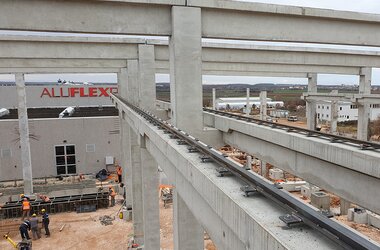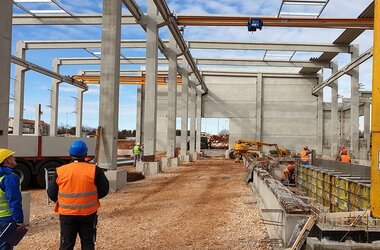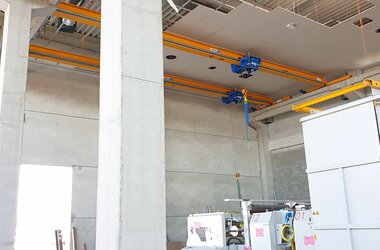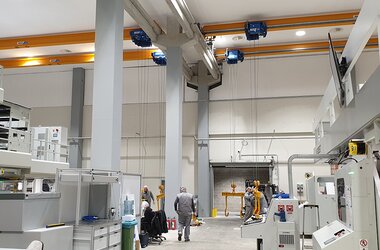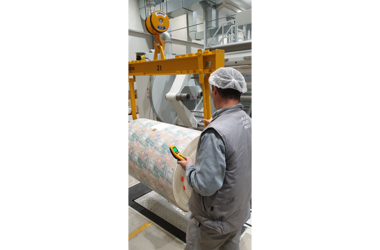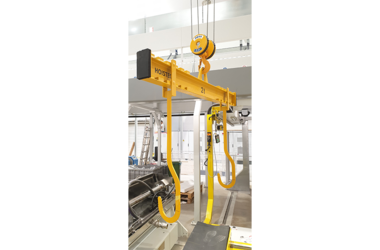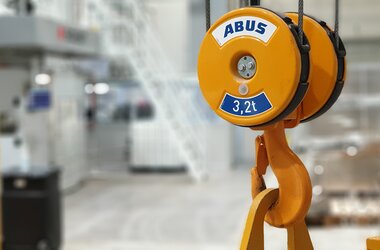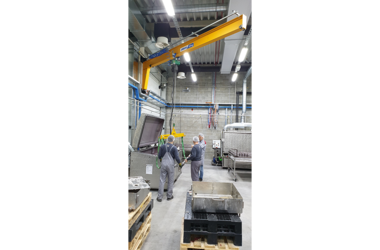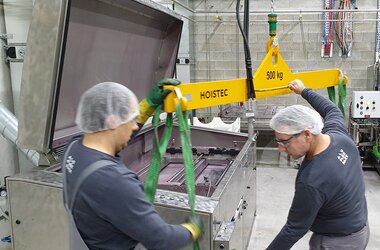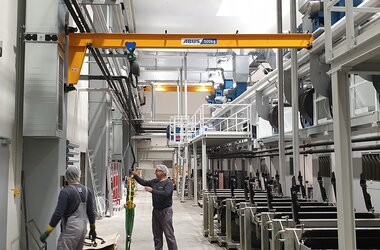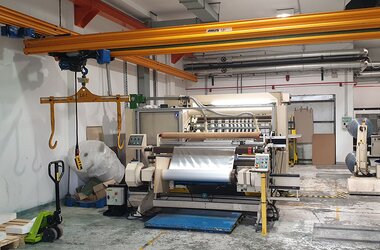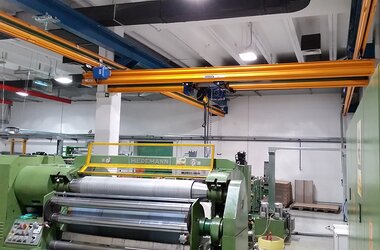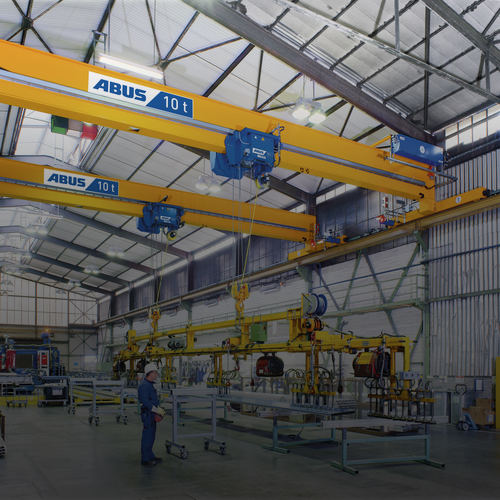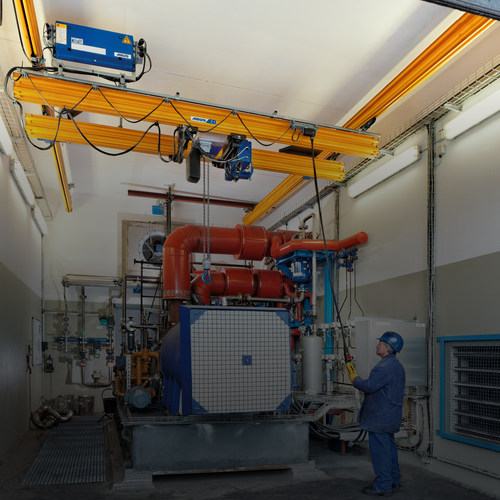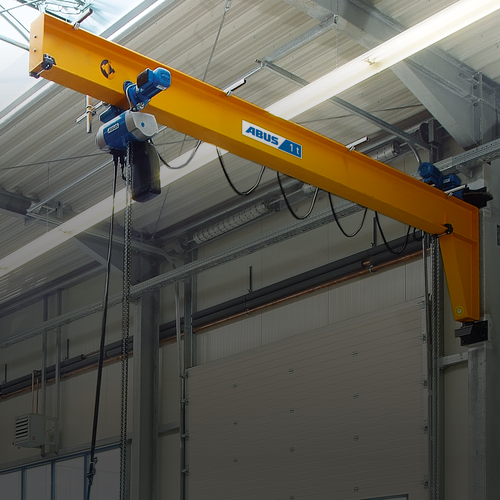ABUS cranes at manufacturer’s for familiar brands’ packaging
Many everyday products—and foodstuffs in particular—cannot be transported, stored, or be sold without suitable packaging. Packaging does not only serve to protect the product but is also a carrier of information and, not least, is used for promotion and marketing purposes. Users recognise many products by the shapes and colours of the packaging as well as by the company logos printed on them. Packaging can consist of very different materials such as paper, plastics, or metal depending on the applications and requirements.
The Aluflexpack group (www.aluflexpack.com) with headquarters in Reinach, Switzerland, is an internationally active manufacturer of packaging with a total of 7 production sites in 4 countries. Aluflexpack, AFP in short, employ 1,100 staff and specialise in flexible packaging. The AFP group can look back on 35 years of experience in processing native aluminium and plastic foils which result in high quality end products. Aluminium and plastics are laminated, coated, extruded, printed, cut, embossed, punched, and shaped into flexible premium packaging. AFP’s products are used in many branches of food and non-food industries: for tea and coffee, for sweets and milk products, for baby food, for drinks, soups, and food supplements, and also for detergents, cosmetics, and pharmaceuticals. Many international manufacturers of brands known throughout the world active in sectors mentioned above make use of AFP group’s packaging. Cutting-edge printing machines achieve excellent results through roto, flexo, and digital printing onto aluminium, plastics, and paper.
One of the 7 production sites is situated in Umag, in the northwest of Croatia. This production plant specialises in gravure printing and laminating as well as in wax coating of packaging for products of selected branches: packaging for tea and coffee as well as for sweets is produced here among other things. Efficient production of packaging is unthinkable for the Aluflexpack group without the use of crane and lifting technology. Several years ago two ABUS suspended rail systems were installed in the production plant. They came in the shape of double girder cranes of the ZHB type with spans of 5 metres and a track length of 16 metres and a lifting capacity of 1.6 tonnes. Electric chain hoists of the ABUCompact series were used as lifting devices. The electric chain hoists are installed between the crane girders in ZHB systems which means that the lifting heights are increased and the available space used in an optimal way.
In 2019 the AFP group invested in the Croatian site in new buildings and machinery for the production in order to increase production capacity and to meet growing demands from the market. The company Hoistec d.o.o. in Zagreb (www.hoistec.hr), the ABUS partner in Croatia, was involved in this project from the first minute of planning and assisted the AFP group not only with the choice of crane systems but also with the crane tracks—the craneway girders for this project were manufactured from concrete. During the planning process it was also possible to optimise the building height for the best use of space for ABUS cranes.
A total of 4 EOT cranes and 2 jib cranes were installed in this new production unit. The EOT cranes used are single girder cranes ELV with spans of 15.23 metres and SWLs of 3.2 tonnes. Cranes of this type in the lower load capacity range feature main girders made of rolled section girders. In this production plant two cranes each are operating on one crane track and they are distanced via collision protection devices. If the two cranes approach they are first switched from fast to slow travelling before both cranes stop. All four EOT cranes are operated via radio remote control ABURemote. This allows the crane user to move the loads from a safe place while keeping an eye on them all the while.
EOT cranes transport loads across the whole plant whereas jib cranes are generally used for work place specific tasks. The wall jib cranes of the VW type—with the aid of a cross beam—are used to clean the printing rollers. These jib cranes were fitted with pneumatic chain hoists for safety reasons. The jib arms are moved manually.
The cranes were installed during the building phase of the production plant. Thus they could already be used to install the production machinery even before production was started.

